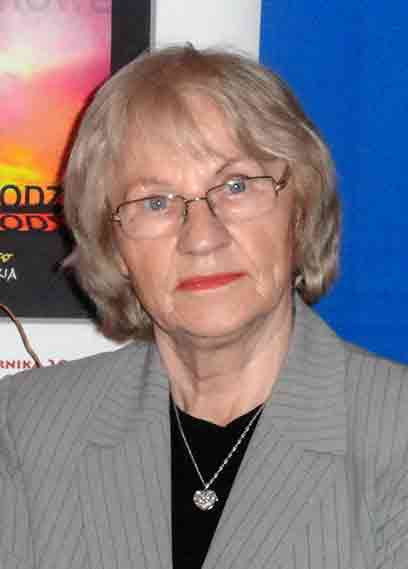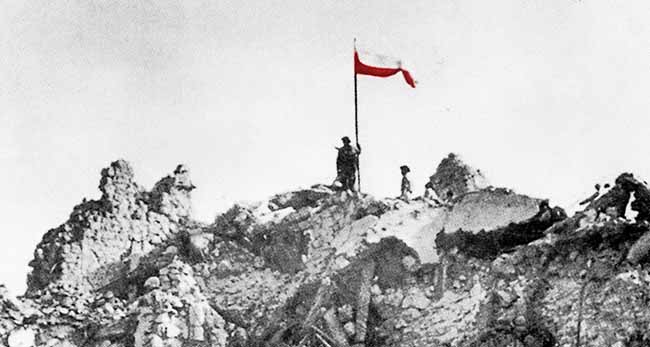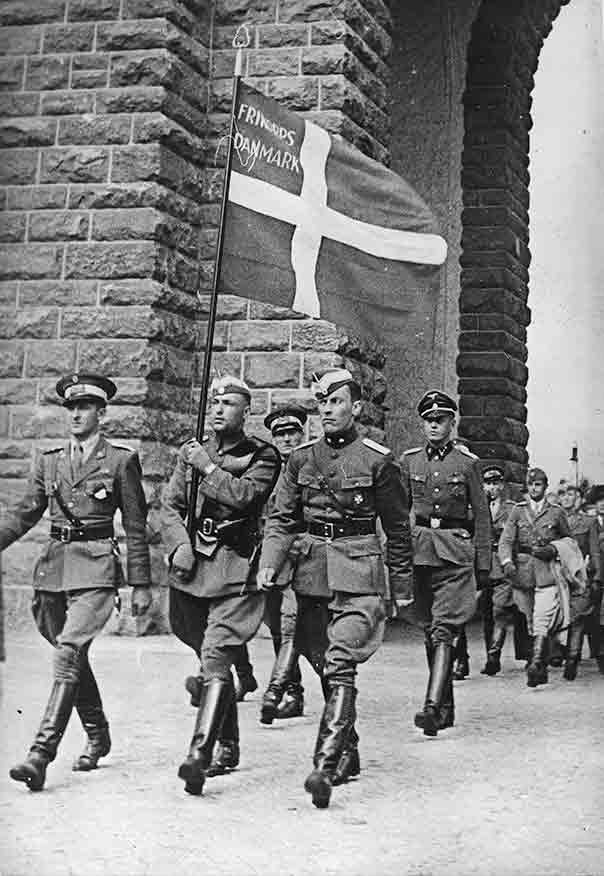The Poles were the only nation that did not give up the fight after the defeat in September 1939. Polish soldiers fought wherever there were fights against fascism. They believed that all roads lead them to a free Poland. Among such unwavering optimists were also men from the 1st Polish Armored Division of General Stanisław Maczek.

Source: Unsplash
Beaten in battle, interned in Romania and Hungary, they sneaked into the West, to France, where they formed regular troops in order to save France, that dubious ally which did not want to save itself.
After its defeat, armored personnel with broken wings made their way to England. They regrouped, moved from horses to iron tank saddles, tuned in their radio transmitters and landed in Normandy in August 1944. They deeply believed that they are getting closer to Poland.
They walked to Her through Caen and Falaise, leaving behind their companions, broken gear, and the legend of their bravery and valor. They could feel the taste of victory. Now they were taking revenge for the September, for Westerplatte, for Wieluń, for Warsaw. The victory in the fight for the "Pocket" decorated their temples with eternal laurels. Afterwards, they chased the enemy down the beaches of Normandy and through the cities of Wallonia and Flanders, bringing freedom to the Belgians and the Dutch. On their way, they put up signposts "To Warsaw"...
Unfortunately, only the worst of news came from Warsaw at that time. The uprising was dying down, and the civilians, humiliated, subdued, beaten, and stripped of their dignity, went into German captivity. The unsuccessful operation "Market Garden", unfulfilled plans to end the war by the end of 1944, stopped the Allied offensive.
They set off again in the spring of 1945 to finish off the enemy in its nest. On the way, they obtained information about the camp in Oberlagen, where 1,726 female prisoners - Home Army soldiers, participants of the Warsaw Uprising - were held. Liberated by the 1st Division on April 12, 1945, the women followed the Division as auxiliary and accompanied it until it was dissolved.
On April 27, the 1st Armored Division, under the command of General Maczek, began to cross river Leda, and then prepared to attack the menacing German war port of Wilhelmshaven. On May 4, after heavy fighting in the marshy areas of Friesland, the Division made contact with the command of the fortress and on the night of May 5/6, the fortress unconditionally surrendered. The commander of the fortress surrendered to the front of the 21st Army Group, a representative of the Royal Navy, Admiral Golt, and the Polish commander of the 2nd Armored Regiment, certified colonel Antoni Grudziński.
Poles temporarily took possession of the city of 80,000 and among those who capitulated were: 2 admirals, 1 general, 1,900 officers, 32,000 rank and file soldiers. Equipment loot included: 3 cruisers, 18 submarines, 205 smaller ships and auxiliary units, 94 fortress cannons, 159 field guns, 560 heavy machine guns, 370 hand machine guns, 40,000 rifles, 280,000 artillery shells, 4 million small arms ammunition , 203,000 hand grenades, numerous mines and torpedoes, and stored food supplies for 50,000 soldiers for 3 months.
Despite such a glorious end to the combat trail, the Division did not come to the victory parade in Warsaw or Berlin. It dealt with the organization of life in a liberated city, and then with the organization of the life of liberated people from concentration and labor camps, and finally with the organization of the emigration of heroes from Tobruk and Monte Cassino to America and Australia.
The soldier poet Feliks Konarski, the same author of the words of the song "Red Poppies on Monte Cassino", told the fate of the 1st Polish Armored Division:
Hussar wing on his shoulder,
Hussar sign in blood.
Our soldier's trail blooms in the shade
Of the Normandy hills and vineyards.
Through the colorful fields of Flanders
The victorious tanks are carrying the news
That a Pole is going to the Netherlands
To bring freedom to the tired people.From Westerplatte to Wilhelmshaven,
From white Gdynia to Falase,
Armored boys in a foreign land
They have not forgotten Polish tears.
For sad September,
For that autumn,
Through blood and death,
Through work and toil,
For the Polish harm they go into battle.For the betrayal of Lviv and Warsaw
And dozens of other betrayals!
The German thug with the face of an executioner
He will not spit in our face anymore.
Although the honor of the world fails us,
We still have our own honor!
On the march to Poland, the 1st Armored Division lost 300 soldiers, left 975 dead in local cemeteries, had to heal 3,320 comrades with the black epaulettes. Fate has scattered them along various routes in the world with a bleeding wound of love for Poland in their hearts.
It is the duty of Poles in exile to exert influence on the countries whose freedom Poles fought for on all fronts of World War II. The idea is to make amends for veterans and their families by restoring their dignity. Some steps may already be noticed, but it is not enough.
Write, influence politically, call local politicians in these countries, demand protection, graves, monuments and the recognition for their liberators.






